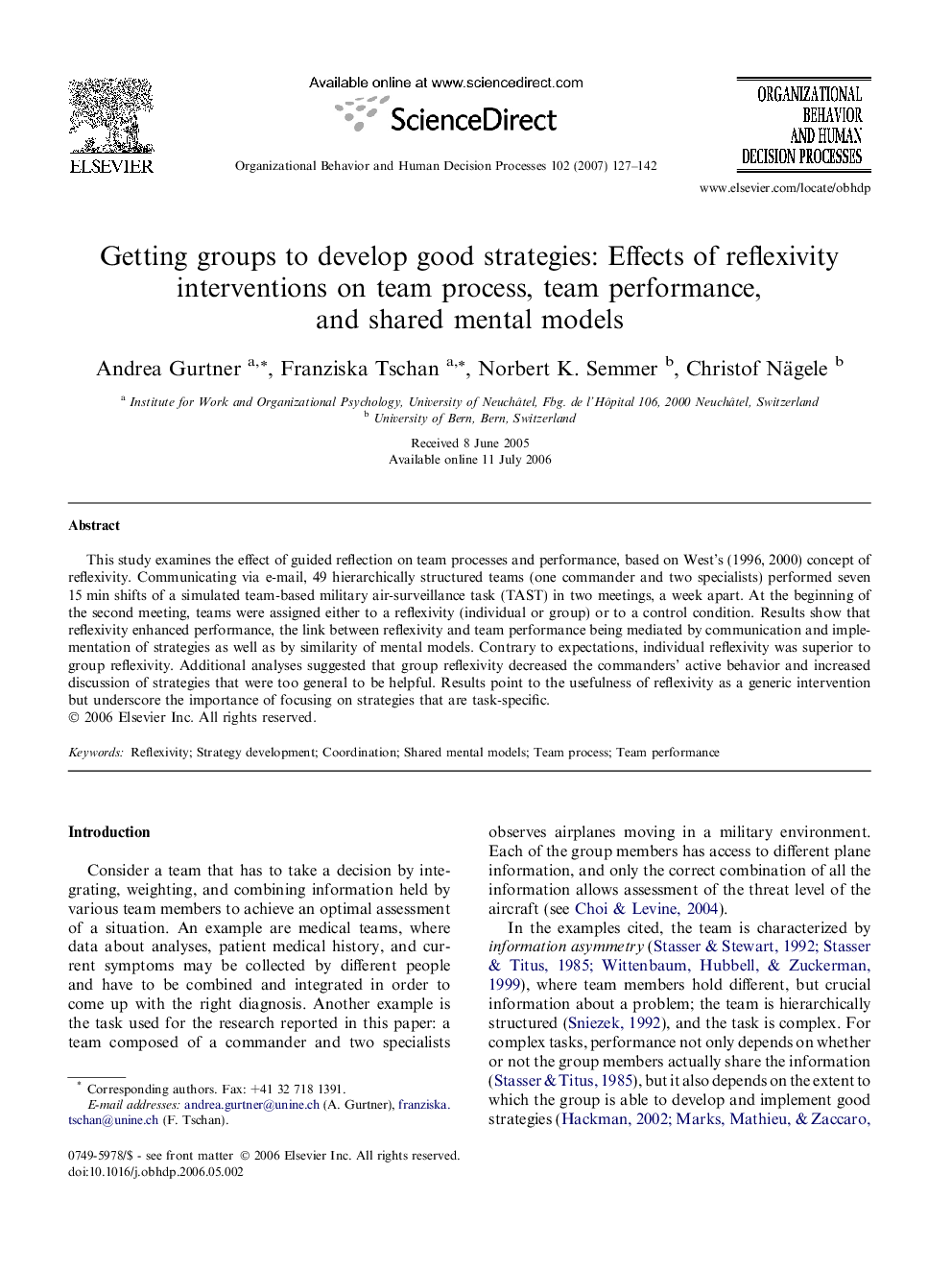| Article ID | Journal | Published Year | Pages | File Type |
|---|---|---|---|---|
| 888993 | Organizational Behavior and Human Decision Processes | 2007 | 16 Pages |
This study examines the effect of guided reflection on team processes and performance, based on West’s (1996, 2000) concept of reflexivity. Communicating via e-mail, 49 hierarchically structured teams (one commander and two specialists) performed seven 15 min shifts of a simulated team-based military air-surveillance task (TAST) in two meetings, a week apart. At the beginning of the second meeting, teams were assigned either to a reflexivity (individual or group) or to a control condition. Results show that reflexivity enhanced performance, the link between reflexivity and team performance being mediated by communication and implementation of strategies as well as by similarity of mental models. Contrary to expectations, individual reflexivity was superior to group reflexivity. Additional analyses suggested that group reflexivity decreased the commanders’ active behavior and increased discussion of strategies that were too general to be helpful. Results point to the usefulness of reflexivity as a generic intervention but underscore the importance of focusing on strategies that are task-specific.
